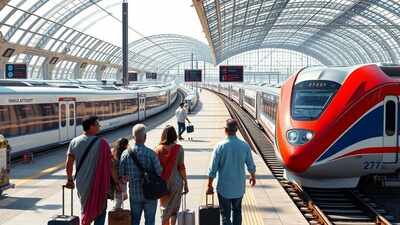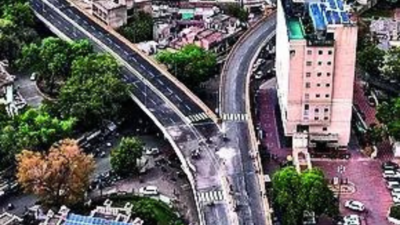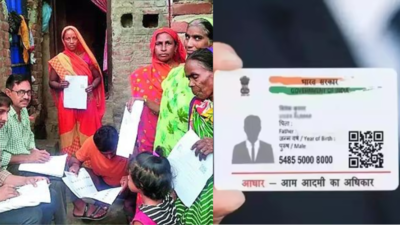Indian Railways to launch 1,000 new trains in 5 years; bullet train project on track: Ashwini Vaishnaw

Indian Railways’ network is looking to undergo a dramatic transformation, with Union minister Ashwini Vaishnaw laying out an ambitious plan to scale up capacity, reduce costs, and improve passenger experience.Speaking to ET, the Railway Minister said that the government aims to introduce 1,000 new trains in the next five years and begin commercial operations of the bullet train by 2027.The changes, he said, are part of a long-term vision to make Indian Railways a major global player in rail exports and a backbone for cost-efficient logistics in the country.According to Vaishnaw, India has added 35,000 km of tracks in the last 11 years, equivalent to the size of Germany’s entire network. “In one year alone, we added 5,300 km,” he said, adding that 30,000 wagons and 1,500 locomotives are being manufactured annually, which is more than the combined output of North America and Europe.“Investment in railways has jumped from Rs 25,000 crore to Rs 2.52 lakh crore, with an additional Rs 20,000 crore from PPPs,” he said.Logistics is another area where the ministry sees transformative change. “Railways offer freight transport at less than half the cost per tonne-km compared to highways and are 95% more environment-friendly,” Vaishnaw said. He added that rail’s share in cargo handling has grown from 26% to 29% in the last decade, with the aim to push this beyond 30% and towards 35%.The bullet train project, a flagship high-speed rail initiative, is progressing with Japanese collaboration. The first prototype is expected to run in 2026, with commercial launch targeted for 2027. IIT Madras and IIT Roorkee are also involved in design and research.Vaishnaw highlighted that many unique components, including 40-metre girders, are now being manufactured domestically and even exported.To enhance passenger experience, the government has added 2,000 general coaches over the past two years and launched trains like Amrit Bharat and Namo Bharat. “We’re making rail travel affordable. Fares are lower than in Pakistan and Bangladesh,” the minister said.On safety, Vaishnaw said derailments have fallen from 170 annually to under 30, while overall rail accidents are down 80% over the last decade. He credited daily safety reviews and upgrades in track, points, and signalling systems.Vaishnaw also ruled out full privatisation of Indian Railways, stressing the need for a synchronised system. Citing lessons from the UK and Germany, he said India would follow models like Japan and Switzerland, where integration and professional management are prioritised.“The railways had three bottlenecks—capacity, technology, and investment. These have now been addressed,” he said, projecting a future where India not only builds for itself but becomes a key global supplier in the rail sector.




